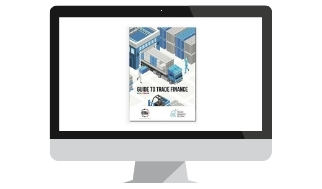What is Sugar Trade Finance?
Sugar is a profitable and widely traded global commodity. Production is genuinely globalised, with regions all around the world contributing significantly to supply, and both the inputs to the production process and refined sugars themselves are traded in both directions and in increasing volumes between developed and developing nations. TFG can offer financial products to the UK and non-UK traders of sugar products to help them maximise revenues from this healthy international market.
Sugar Trade Finance
The UK has two major sugar producers who operate using two different sugar products; sugar cane, and sugar beet. Both import and export large volumes of product based on deep relationships with several key producers and buyers. Changes to the UK’s regime of tariffs and quotas governing sugar cane, sugar beet and refined sugars are all likely as Britain reshapes its trading relationship with the EU and the world after Brexit. This potentially offers huge opportunities to UK-focused exporters and importers of sugar and sugar products. Global trade of sugar is relatively liberalized, accounting for around 20-25% of global aggregate demand, compared to an average 10-20% for most commodities. South American nations account for the majority of sugarcane production; the USA operates a strict tariff and quota regime in support of its domestic beet growers; and South East Asian nations import and export huge volumes of refined sugar, with Indonesia leading the way.
Conducting transactions across international borders can be risky and uncertain for sugar traders, as they usually deal with suppliers in different legal and regulatory jurisdictions. This increases the financial risks associated with the transactions, be that simple buyer non-payment upon dispatch of goods leaving suppliers with large legal bills and lengthy waits to recover payment, or supplier regulatory negligence landing buyers with large fines or tariff bills. Trade finance products can help support these profitable transactions not only by providing the finance to allow firms to invest in them, but by deploying specific trade finance tools to mitigate these risks and ensure transactions are concluded successfully.
Key sugar products include:
- Cane sugar (fresh or dried)
- Beet sugar (fresh or dried)
- Sucrose
- Lactose
- Maltose
- Glucose
- Fructose
- Artificial Honey
- Caramel
- You are an established producer with existing revenue streams
- You are considered suitable to receive credit
- Your proposed venture has confirmed buyers or sellers of sugar products with the infrastructure to trade in volume
Once a firm provides a request for credit to fund a proposed venture, TFG can fully assess it for operational risk. Once completed, they can recommend both the appropriate financial product for a firm’s circumstances, and the specific trade finance tools they may require to conduct the transaction. This usually takes the form of a documentary collection service, where the trade financier will operate as a middleman between buyer and seller, exchanging letters of credit guaranteeing payments for suppliers in exchange for promissory notes (or bills of exchange) demonstrating compliance with the terms of the buyers contract. Management of this documentary process reduce the risk of expensive issues arising and maximises the profitability of international trade ventures.
What is the SIC Code for Trade in Sugar?
The manufacture of sugar is covered by a single SIC code – 10822.
Other industry codes this information might be relevant to include:
| 01140 | Growing of sugar cane |
| 10822 | Manufacture of sugar confectionery |
| 46360 | Wholesale of sugar and chocolate and sugar confectionery |
| 47240 | Retail sale of bread, cakes, flour confectionery and sugar confectionery in specialised stores |
A separate trade finance pages exists for Confectionery Trade Finance, and for broader Food & Drink Trade Finance.
Full tariff schedules for sugar and sugar products can all be found on gov.uk.

Case Study
A large sugar manufacturer was struggling to secure the quantities of raw material needed to produce its product. TFG helped expedite their supplier process by paying suppliers instantly, speeding up shipments and reducing transportation risks.
Speak to our trade finance team
Benefits
- Conduct international transactions without fear of undue risk
- Thorough and quick assessment of your request for credit
- Prompt payment of suppliers to reduce trade cycles
 Australia
Australia Hong Kong
Hong Kong Japan
Japan Singapore
Singapore United Arab Emirates
United Arab Emirates United States
United States France
France Germany
Germany Ireland
Ireland Netherlands
Netherlands United Kingdom
United Kingdom

